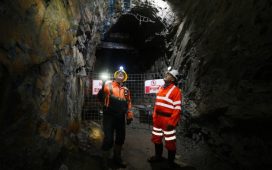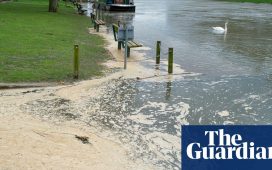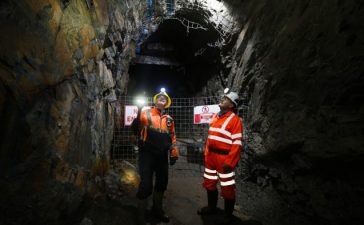Unlock the Editor’s Digest for free
Roula Khalaf, Editor of the FT, selects her favourite stories in this weekly newsletter.
Sir Keir Starmer has warned that “violence committed by a small minority of thugs” will be met with the full weight of the law after dozens were arrested in clashes with the police in towns and cities across England on Saturday.
It was just the latest disruption after several nights of unrest triggered by the killing of three girls on Monday.
Starmer held emergency talks with ministers on Saturday to discuss the riots spurred by far-right agitators. He said the right to freedom of expression and violent disorder were “two very different things” and labelled participants “extremists”.
The prime minister said the government backed the police to “take all necessary action” to keep Britain’s streets safe after attacks on police officers, disruption to local businesses and what he said were attempts to sow hate by intimidating communities.
More than 90 people were arrested on Saturday after violent gatherings in several cities including Bristol, Blackpool, Hull and Liverpool, according to various regional police forces.
Judges were on Sunday considering keeping courts open all night to work through the backlog of cases, as they did in the wake of the 2011 riots that resulted in thousands of arrests and prosecutions.

The National Police Chiefs’ Council said that 4,000 extra officers were in place across the country to deal with any further outbreaks of violence over the weekend and into next week. Anyone caught offending would face “robust action” it said.
Home Office minister Dame Diana Johnson told the BBC that government ministers were engaging with social media companies about the spread of misinformation online.
Johnson added that there had been no discussions about bringing in the army to deal with the unrest. “The police have made it very clear that they have all the resources they need at the moment . . . they have the powers that they need,” she said.
Yvette Cooper, home secretary, said on Saturday that the “criminal violence and disorder” was unacceptable. The government would back the police in acting against “thuggery”, and individuals involved in disorder would “pay the price”, she said.
Cooper added that arrests and charges had already taken place and a range of enforcement options would be pursued including “imprisonment, travel bans and more”.
Merseyside Police described scenes of “serious disorder” in Liverpool on Saturday, where several officers were injured after masked protesters threw bricks and chairs at police and rampaged along the city’s waterfront.
The violence was originally sparked by a mass stabbing in Southport, in north-west England, on Monday, in which three girls were killed and eight other children and two adults were injured. A suspect has been arrested and charged with murder.
Politicians in Liverpool had warned outsiders with a “racist” agenda not to exploit the Southport killings.
Steve Rotheram, mayor of Liverpool city region, said on Saturday that “the very police who ran towards the scene in Southport” were being “subjected to assault and abuse”.
“It’s not on — especially while our region is still trying to come to terms with Monday’s tragic events,” he said. “These scenes shame our city and those responsible deserve to feel the full weight of the law.”
The rioting in Liverpool later spread to the suburb of Walton. About 300 protesters gathered outside a mosque before setting buildings on fire, looting, attacking firefighters and severely damaging a newly renovated community hub and library.
In Manchester a group gathered, some wearing balaclavas and waving Union Jacks and England flags. Several arrests were made. Some counter-protesters held a march through the city to oppose them.
Part of the city had already experienced disorder earlier in the week when demonstrators targeted a hotel housing asylum seekers.
Other parts of England also experienced violent protests on Saturday, including Stoke-on-Trent and Hull, where fires were lit across the city centre and bins hurled as demonstrators faced a heavy police presence.
Anti-racism campaign group Hope not Hate said rallies had been planned in more than 30 locations in England and Wales this weekend, according to social media posts.
Scores of arrests had already been made across England over the course of this week, including more than 100 people detained by police at a rally outside Downing Street.
On Friday night rioters took to the streets of Sunderland in north-east England, setting fire to a building next to a police station, overturning vehicles and hurling projectiles at riot police. Officers prevented dozens of rioters from attacking a mosque.
On Friday, Starmer met local government, police and faith leaders in Southport and confirmed a support package to aid bereaved families and community cohesion, including improved access to mental health services.










